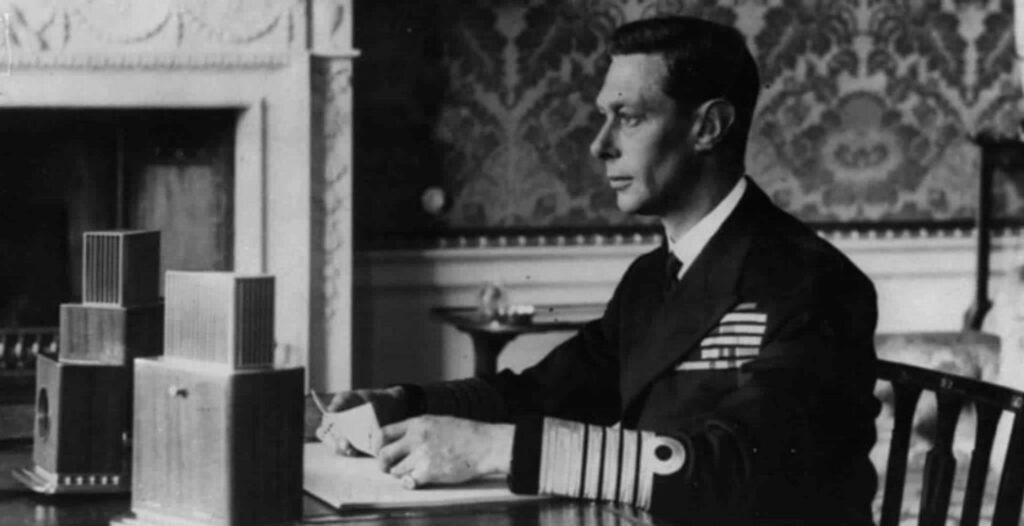The challenges we have in life can range from the mundane to the outright heartbreaking. To overcome them, a sense of psychological safety is foundational. We can see how influential psychological safety is on our wellbeing and success in the 2010 film, The King’s Speech.

In the video below, you’ll see how speech therapist Lionel Logue played music to help Prince Albert (King George VI) overcome his stuttering problem. But you’ll get the details on why it was really the removal of Prince Albert’s ability to hear his stutter, rather than the music-language connection, that let Prince Albert break free of his speech difficulty.
[Transcript summary]
All of us get scared to do things sometimes. But there’s a hint about how to get past the fears we have in the 2010 film, The King’s Speech.
In the movie, Colin Firth plays Prince Albert of England, who suffers from a serious stutter. Albert knows there’s a chance he might become king one day and have to give speeches if his older brother doesn’t produce an heir. So, over the course of the movie, Prince Albert works with Lionel Logue, a speech therapist. We learn in one emotional scene how all the abuse Prince Albert has gone through has made his stutter worse. That scene makes it clear that the severity of Prince Albert’s speech problems tie to a lack of psychological safety.
Lionel knows that the flow of music can influence the flow of speech. So, in their first session together, Lionel has Prince Albert make a recording of himself reading Hamlet’s To Be, Or Not to Be soliloquy. As Prince Albert reads, he listens to classical music. Because he’s wearing headphones, Prince Albert doesn’t realize until he listens to the session recording that the music has helped him not stutter at all.
But what’s really going on in the scene?
Yes, music and language are working together. But the scene is profound not because Lionel added music, but rather because the music took away Prince Albert’s ability to hear his own stutter. Because he couldn’t hear the stutter, his brain likely wasn’t perceiving any threat, and as a result, he was able to physically speak without any problems. This convinces Prince Albert to keep working with Lionel, and eventually, once he becomes king, he’s able to give a critical speech to rally his country during a time of war.
So, what do we learn?
Sometimes, it’s not that we can’t do something. Sometimes, we just need to find a way to shut off the protective but inaccurate perception of danger that we have so the brain can complete the tasks its capable of. It might take a lot of work to figure out what works as a shut-off switch for you, but the film is a fantastic example of how intentionally creating a sense of psychological safety can help you overcome the scary things that could hold you back.
What helps you feel the most psychologically safe? Leave me a note on LinkedIn.
